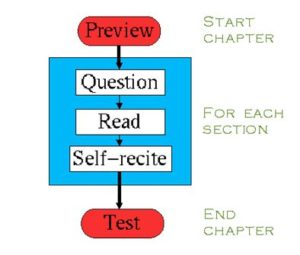Summer Reading for SAT / ACT Prep
In many ways, the world is an unnerving place right now. If you’re having difficulty sitting down and focusing on your studies, you are not alone. Perhaps getting lost in a book sounds more appealing. For those of you looking to prepare for your upcoming SAT, ACT, or SAT II Literature exam, we have pulled together a list of suggested reading that may resemble some of the passages you will encounter on the test. These novels, short stories, and poems seem to be favorites of the folks behind the SAT and ACT. We’ve sourced this list from previously released official exams, pulling out content that has appeared multiple times or has been written by notable authors. Encountering an unfamiliar, difficult-to-understand passage on an exam can be very intimidating. By bulking up on independent reading that is in the style of typical SAT / ACT reading passages, you may feel more at ease on test day. So, if you’re looking for something to read this summer, why not kill two birds with one stone? Check out these SAT / ACT favorites and boost your confidence on test day!
Fiction
A Clergyman’s Daughter by George Orwell: A 1935 novel that tells the story of Dorothy Hare, a clergyman’s daughter, whose life is turned upside down when she suffers an attack of amnesia.
Middlemarch by George Eliot: A 19th century novel in eight installments set in a fictitious English town addressing social, political, and religious issues of the time period.
The History of the Life of the Late Mr. Jonathan Wild, the Great by Henry Fielding: An 18th century satirical novel detailing the life of underworld boss Jonathan Wild.
Uncle Tom’s Cabin by Harriet Stowe: An anti-slavery novel published in 1852 addressing the injustices facing African Amercans in the U.S. during the 19th century.
The Duchess of Malfi by John Webster: A darkly satirical revenge tragedy, written as a play set in 16th century Italy.
Jasmine by Bharati Mukherjee: A novel set in the 1980s about a young Indian woman who changes her identity in order to adapt to American society.
Annie John by Jamaica Kincaid: A novel written in 1985 detailing the young life of a girl growing up in Antigua, an island in the Carribean.
Our Mutual Friend by Charles Dickens: Dickens’ last novel, published in 1865, combining satire and social analysis.
The Old Wives’ Tale by Arnold Bennett: A novel published in 1908 following the lives of two very different sisters from their youth through old age.
The Bonesetter’s Daughter by Amy Tan: A mother-daughter novel about love and grief set in contemporary San Francisco and a Chinese village.
Lily Nevada by Cecelia Holland: The dramatic tale of a strong-willed woman who flees her dark and violent past to make a new life and name for herself in San Francisco at the dawn of the Gilded Age.
Atonement by Ian McEwan: The reflective story of a young English girl in 1935 who witnesses an event during her childhood that spurs unintended, catastrophic consequences over the course of her life.
The Master by Colm Toibin: A beautifully written novel set in the 19th century about a man who leaves America to live in Europe amongst artists and writers.
Nonfiction
Blue Highways by William Least Heat-Moon: An autobiographical travel book about the author’s unforgettable journey through the backroads of America.
Natural Acts: A Sidelong View of Science and Nature by David Quammen: A collection of essays discussing bats, octopuses, crows, dinosaurs, animal rights, hypothermia and more.
An Anthropologist on Mars by Oliver Sacks: A collection of seven paradoxical tales of patients adapting to neurological conditions including autism, amnesia, the restoration of vision after congenital blindness, and more.
Great Waters: An Atlantic Passage by Deborah Cramer: The account of a scientific voyage from Woods Hole, Massachusetts to Barbados that brings the reader through the science and history of the Atlantic Ocean.
Superforecasting: The Art & Science of Predicting by Philip E. Tetlock: Named one of the best books of the year by The Economist in 2015, this book draws upon finance, economics, psychology, and other disciplines to share how experts and lay people can make more effective and intelligent predictions.
Short Stories
“Sonny’s Blues” by James Baldwin: A short story about a black algebra teacher in 1950s Harlem as he reacts to his brother Sonny’s drug addiction, arrest, and recovery.
The Music School by John Updike: A collection of Updike’s short stories about people who find their ways in the modern world.
Feel like reading some poetry? Check out these poems as a jumping off point…
“Heart, take no pity on this house of bone” by Edna St. Vincent Millay
“Before the Birth of One of Her Children” by Anne Bradstreet
“Prosody 101” by Linda Pastan
“The Need of Being Versed in Country Things” by Robert Frost
“To the Memory of Mr. Oldham” by John Dryden
“The Dance” by Cornelius Eady
“In Memoriam” by Alfred Tennyson
“The Mountain” by Louise Glück
“To Marguerite: Continued” by Matthew Arnold
“The Young Author” by Samuel Johnson
Who knows? You might find yourself taking the SAT or ACT and come across a passage that you’ve already read. And if not, these reads will still add some thought-provoking variety to your literary repertoire. We hope you enjoy our suggestions! Stay tuned for next week’s blog post if you’re still eager for more book recommendations. We hope everyone is safe and able to find solace in a book, or elsewhere, during these unsettling times. As always, we are here to help.

